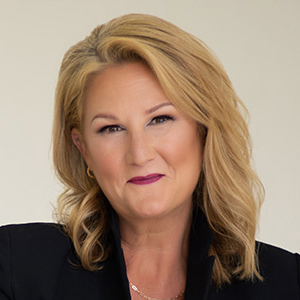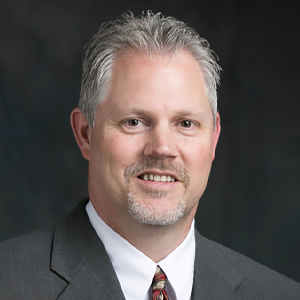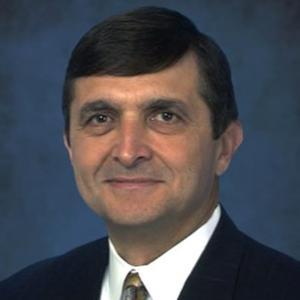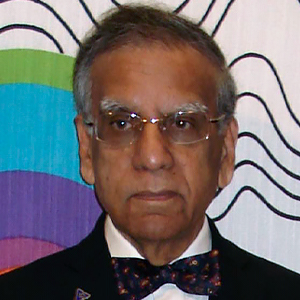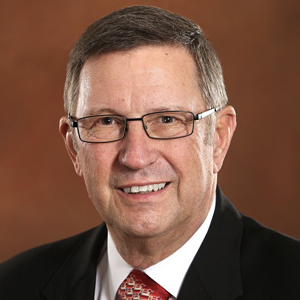Scientific Advisory Board
We are a group of world-renowned scientists and researchers who leads the Institute's research agenda and special projects.Focus on Innovation and Solutions
These specialists are focused on scientific research, supporting the creation of measures, metrics, and guidelines to reduce preventable infections. Together, this group combines their collective understanding of patient care processes, insight into human behavior, microbiology, cleaning and disinfection, and infection prevention. This board aims to provide scientific-based evidence to support innovation and solutions to mitigate the spread of microbes via surfaces within the healthcare setting.
Amber Hogan Mitchell
Dr. Amber Hogan Mitchell’s career has been focused on public health and occupational safety and health related to preventing infectious disease. She is currently President and Executive Director of the International Safety Center and is the Immediate Past Chair of the Occupational Health and Safety section of the American Public Health Association (APHA). She is also a Senior Science Adviser for the NIEHS Worker Training Program for COVID-19 response. Dr. Mitchell holds an adjunct faculty position at the University of Maryland School of Medicine Department of Environmental and Occupational Medicine.
Dr. Mitchell began her career as the first OSHA National Bloodborne Pathogens Coordinator and has received several Secretary of Labor Excellence awards for her work on bioterrorism and public preparedness. She holds a Doctor of Public Health (DrPH) degree from the University of Texas School of Public Health and a Master’s in Public Health from The George Washington University. She is certified in Public Health as a member of the very first CPH cohort offered by the National Board of Public Health Examiners
She also published her first book “Preventing Occupational Exposures to Infectious Disease in Health Care” for professionals with responsibility for infection prevention and control and occupational health and safety programs. Amber was an original member of the Healthcare Surfaces Institute from its inception.
Rodney E. Rohde
Dr. Rodney E. Rohde, PhD is a University Distinguished Professor and Chair for the Clinical Laboratory Science (CLS) Program in the College of Health Professions at Texas State University. He also serves as Associate Director for the Translational Health Research Center. Dr. Rohde is a Global Fellow, Fellow of the Association of Clinical Scientists, and Honorary Professor of International studies. He is an ASCP board certified Specialist in Virology, Microbiology and Molecular Biology. He spent a decade as a public health microbiologist and molecular epidemiologist with the Texas Department of State Health Services (DSHS) Bureau of Laboratories and Zoonosis Control Division prior to his academic career, including two terms as a CDC Visiting Scientist. Dr. Rohde served as Associate Dean for Research in the College of Health Professions for nine years. His research interests include Healthcare Associated Infections (HAIs), antimicrobial resistance, and clinical / public health microbiology especially zoonotic diseases (Rabies, Hantavirus, and others).
William Rutala
Dr. Bill Rutala is the Director and co-founder of the Statewide Program for Infection Control and Epidemiology and a Professor for the Division of Infectious Diseases at the University of North Carolina’s School of Medicine. He was the Director of Hospital Epidemiology, Occupational Health and Safety Program at the University of North Carolina Hospitals for 38 years before retiring in May 2017. He is a retired Colonel with the U.S. Army Reserve and is certified in infection control. He has been an advisor to the Centers for Disease Control and Prevention (a former member of the Healthcare Infection Control Practices Advisory Committee [HICPAC], 1999-2003), the Food and Drug Administration (a former member of the General Hospital and Personal Use Devices Panel), the U.S. Environmental Protection Agency (a member of the Scientific Advisory Panel on Antimicrobial Research Strategies for Disinfectants) and the Federal Trade Commission.
His contributions to infection prevention have been acknowledged by professional organizations with the following awards: Carole M. DeMille Lifetime Achievement Award (APIC, 1999), Lowbury Lecture (Healthcare Infection Society, Scotland, 2002), Hygiene Medal (Rudolf Schulke Foundation, Germany, 2013), Larson Lectureship Award (APIC, 2012), SHEA Lectureship (SHEA, 2012), Barr Distinguished Alumni Award (UNC School of Public Health, 2012), Kelsey Lecture (United Kingdom, 2001 and 2012), Crawford Award (lifetime achievement, OSAP, 2008), and Favero Lectureship (APIC, 2009).
Syed A. Sattar
Dr. Syed A. Sattar, BSc, MSc, Dip Bact, MS, Ph.D., RM (CCM), FAAM, FRSPH is Professor Emeritus of Microbiology. He has been studying the environmental fate of microbes harmful to humans for over five decades now. Another focus of his work is evaluating and promoting safer and better means of preventing the environmental spread of such microbes. Microbicide test methods developed by him now form the basis for several national and international standards. He has published well over 200 peer-reviewed papers and chapters in conference proceedings and books and has delivered some 375invited lectures worldwide. He is a Registered Microbiologist of the Can. College of Microbiologists, a Fellow of the Amer. Acad. of Microbiol. and a Fellow of the Royal Society for Public Health.
He has been an adviser to the Canadian and U.S. governments as well as the World Health Organization and the Organization for Economic Cooperation and Development on various aspects of biosafety and infection prevention. He is an invited member of the Global Virus Network. He is a member of the Advisory Boards of the Healthcare Surfaces Institute, The Infection Prevention Strategy, International Nosocomial Infection Control Consortium and Virox Technologies. Noteworthy among the numerous awards and fellowships he has received are the Lifetime Achievement Award of the Ottawa Centre for Research & Innovation, Hygeia Gold Medal of the Rudolf Schülke Foundation (Hamburg, Germany), Queen Elizabeth Diamond Jubilee Medal, Distinguished Microbiologist Award of the Canadian College of Microbiologists, and an Award of Merit of ASTM International. In addition to being Professor Emeritus, he is the Chief Scientific Advisor to CREM Co Labs, Mississauga, Ontario, Canada.
In Memoriam
Dr. W. Curtis White, Ph.D.
Dr. Curtis White was a founding member of the Healthcare Surfaces Institute and was an active supporter of the board of directors and a major donor. His incredible knowledge and expertise in microbiology, combined with his entrepreneurial experience, helped the Institute through the early years of setting up a successful non-profit organization with an audacious mission. He pushed us to gain a deeper understanding of the root causes of the problem. He co-authored the book “Microbial Problems in Buildings: An Operational Manual for Detection, Remediation & Avoidance,” a fantastic guide for creating tools and resources for healthcare professionals.
Curt was delightful to be around. When he wasn’t talking about the latest research, he was talking about his grandchildren and other family members, his church, and his many other interests. He was quite a renaissance man and inspired hope for responding to shared problems and dilemmas. We will miss him terribly. Our thoughts and prayers are with his family and friends as they adjust to his absence.
MORE ABOUT DR. WHITE: Dr. Curt White is the Chief Technology Consultant and President of White IEQ Consulting and the CEO and CTO of Nano Safe Coatings. He has been involved in the research, development, registration, and commercialization of antimicrobial agents since 1962 as a teacher and working at Dow Chemical, F. Jos Lamb, Dow Corning, and Aegis. He was the founder, CEO, and Director of R&D for ÆGIS Environmental Management, a global supplier of solutions to microbial problems in buildings, enclosed transportation units and consumer and medical textiles including wound care products and construction materials.
Dr. White consults on microbiological problem identification and remediation/containment in buildings and products. He is an expert in textile preservation and infection control and in the control of problem causing microbes in indoor environments and is recognized as a leader in the understanding and control of microbial problems on substrates, in products, and in the indoor environment.
His involvement in professional, trade, and standards organizations setting standards and communicating the values of various antimicrobial technologies and modes of antimicrobial activity has kept him on the leading edge of technical, testing, and commercial developments in the fields of disinfection, preservation, and the protection of indoor environments from microbes.

